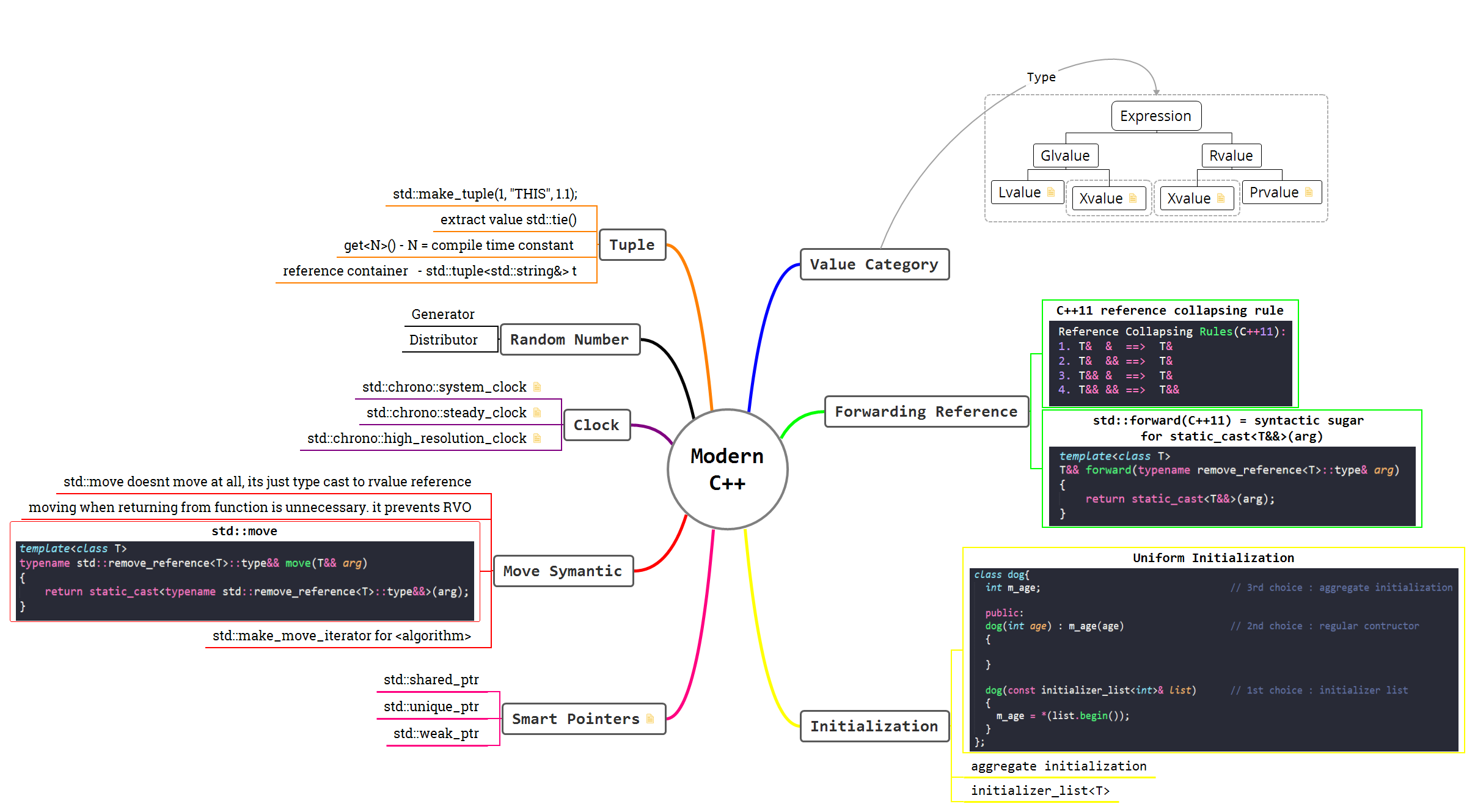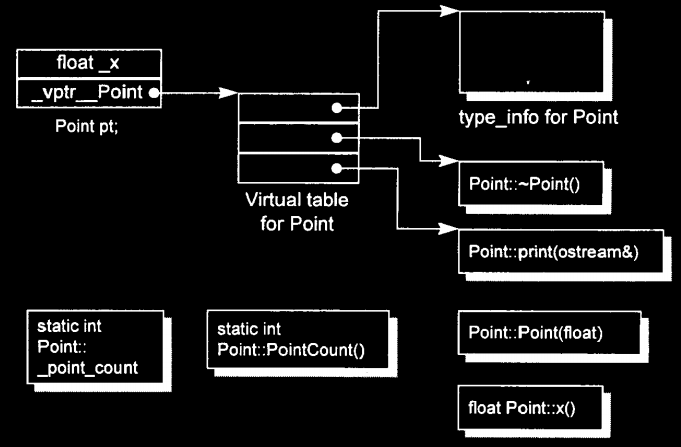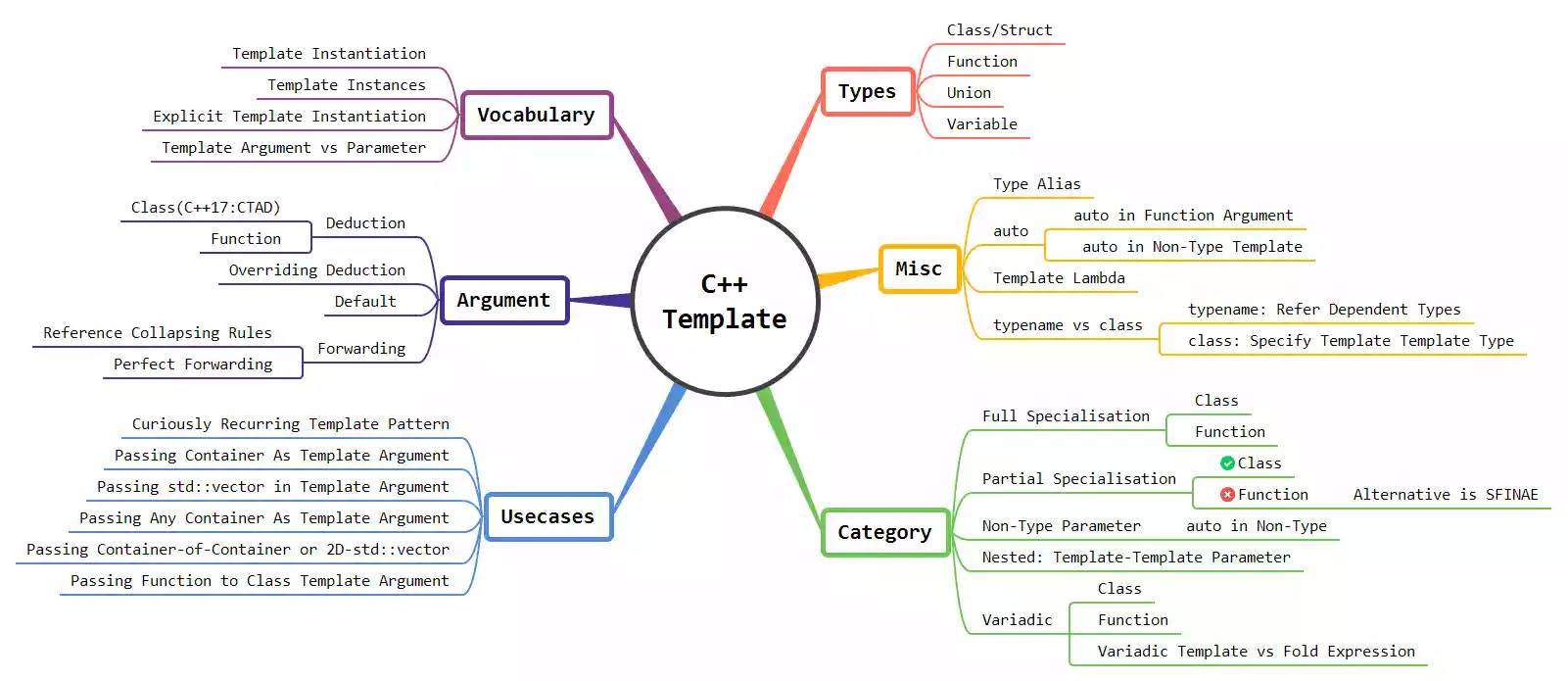The smart pointers are a really good mechanism to manage dynamically allocated resources. In this article, we will see unique_ptr with example in C++11. But we don’t discuss standard smart pointers from a library. Rather, we implement our own smart pointer equivalent to it. This will give us an idea of inside working of smart pointers.
Contents
Brief
Prior to C++11, the standard provided std::auto_ptr. Which had some limitations. But from C++11, standard provided many smart pointers classes. Understanding unique_ptr with example in C++ requires an understanding of move semantics which I have discussed here & here.
But before all these nuisances, we will see “Why do we need smart pointer in 1st place?”:
Why do we need smart pointers?
void func()
{
Resource *ptr = new Resource;
int x;
std::cout << "Enter an integer: ";
std::cin >> x;
if (x == 0)
throw 0; // the function returns early, and ptr won't be deleted!
if (x < 0)
return; // the function returns early, and ptr won't be deleted!
// do stuff with ptr here
delete ptr;
}
- In the above code, the early
returnorthrowstatement, causing the function to terminate without variableptrbeing deleted. - Consequently, the memory allocated for variable
ptris now leaked (and leaked again every time this function is called and returns early). - These kinds of issues occur because pointer variables have no inherent mechanism to clean up after themselves.
- Following class cleans-up automatically when sources are no longer in use:
smart_ptr aka std::auto_ptr from C++98
template<class T>
class smart_ptr
{
T* m_ptr;
public:
smart_ptr(T* ptr=nullptr):m_ptr(ptr){}
~smart_ptr()
{
delete m_ptr;
}
T& operator*() const { return *m_ptr; }
T* operator->() const { return m_ptr; }
};
- Now, let’s go back to our
func()example above, and show how a smart pointer class can solve our challenge:
class Resource
{
public:
Resource() { std::cout << "Resource acquired\n"; }
~Resource() { std::cout << "Resource destroyed\n"; }
};
void func()
{
smart_ptr<Resource> ptr(new Resource); // ptr now owns the Resource
int x;
std::cout << "Enter an integer: ";
std::cin >> x;
if (x == 0)
throw 0;
if (x < 0)
return;
// do stuff with ptr here
// dont care about deallocation
}
int main()
{
try{
func();
}
catch(int val){}
return 0;
}
- Output
Resource acquired Hi! Resource destroyed
- Note that even in the case where the user enters zero and the function terminates early, the
Resourceis still properly deallocated. - Because of the
ptrvariable is a local variable.ptrdestroys when the function terminates (regardless of how it terminates). And because of thesmart_ptrdestructor will clean up theResource, we are assured that theResourcewill be properly cleaned up. - There is still some problem with our code. Like:
int main()
{
smart_ptr<Resource> res1(new Resource);
smart_ptr<Resource> res2(res1); // Alternatively, don't initialize res2 and then assign res2 = res1;
return 0;
}
- Output
Resource acquired Resource destroyed Resource destroyed
- In this case destructor of our
Resourceobject will be called twice which can crash the program. - What if, instead of having our copy constructor and assignment operator copy the pointer (“copy semantics”), we instead transfer/move ownership of the pointer from the source to the destination object? This is the core idea behind move semantics. Move semantics means the class will transfer ownership of the object rather than making a copy.
- Let’s update our
smart_ptrclass to show how this can be done:
template<class T>
class smart_ptr
{
T* m_ptr;
public:
smart_ptr(T* ptr=nullptr) :m_ptr(ptr) {}
~smart_ptr()
{
delete m_ptr;
}
// copy constructor that implements move semantics
smart_ptr(smart_ptr& a) // note: not const
{
m_ptr = a.m_ptr; // transfer our dumb pointer from the source to our local object
a.m_ptr = nullptr; // make sure the source no longer owns the pointer
}
// assignment operator that implements move semantics
smart_ptr& operator=(smart_ptr& a) // note: not const
{
if (&a == this)
return *this;
delete m_ptr; // make sure we deallocate any pointer the destination is already holding first
m_ptr = a.m_ptr; // then transfer our dumb pointer from the source to the local object
a.m_ptr = nullptr; // make sure the source no longer owns the pointer
return *this;
}
T& operator*() const { return *m_ptr; }
T* operator->() const { return m_ptr; }
};
class Resource
{
public:
Resource() { std::cout << "Resource acquired\n"; }
~Resource() { std::cout << "Resource destroyed\n"; }
};
int main()
{
smart_ptr<Resource> res1(new Resource);
smart_ptr<Resource> res2(res1);
return 0;
}
- Output
Resource acquired Resource destroyed
std::auto_ptr, and why to avoid it
- What we have seen above as
smart_ptris basically anstd::auto_ptrwhich was introduced in C++98, was C++’s first attempt at a standardized smart pointer. - However,
std::auto_ptr(and oursmart_ptrclass) has a number of problems that make using it dangerous.
- Because
std::auto_ptrimplements move semantics through the copy constructor and assignment operator, passing anstd::auto_ptrby value to a function will cause your resource to get moved to the function parameter (and be destroyed at the end of the function when the function parameters go out of scope). Then when you go to access yourstd::auto_ptrargument from the caller (not realizing it was transferred and deleted), you’re suddenly dereferencing a null pointer. Crash! std::auto_ptralways deletes its contents using non-array delete. This meansstd::auto_ptrwon’t work correctly with dynamically allocated arrays, because it uses the wrong kind of deallocation. Worse, it won’t prevent you from passing it a dynamic array, which it will then mismanage, leading to memory leaks.
- Because of the above-mentioned shortcomings,
std::auto_ptrhas been deprecated in C++11, and it should not used. In fact,std::auto_ptrslated for complete removal from the standard library as part of C++17! - Overriding the copy semantics to implement move semantics leads to weird edge cases and inadvertent bugs. Because of this, in C++11, the concept of “move” formally defined. And “move semantics” added to the language to properly differentiate copying from moving. In C++11,
std::auto_ptrhas been replaced by a bunch of other types of “move-aware” smart pointers:std::scoped_ptr,std::unique_ptr,std::weak_ptr, andstd::shared_ptr. - We’ll also explore the two most popular of these:
std::unique_ptr(which is a direct replacement forstd::auto_ptr) andstd::shared_ptr.
std::unique_ptr with example in C++11
std::unique_ptris the C++11 replacement forstd::auto_ptr. It is used to manage use to manage any dynamically allocated object not shared by multiple objects. That is,std::unique_ptrshould completely own the object it manages, not share that ownership with other classes.- We can convert our
smart_ptrwe designed above intostd::unique_ptr. And for that one thing, we can do is delete the copy constructor & assignment operator so that no one can copy smart pointer. - As we are not allowing a copy of smart pointer we can’t pass our smart pointer to any function by value or return by value. And this is not good design.
- To pass or return by value, we can add move constructor & move assignment operator, so that while passing or returning by value, we would have to transfer ownership through move semantics. This way we can also ensure single ownership throughout the lifetime of the object.
template<class T>
class smart_ptr
{
T* m_ptr;
public:
smart_ptr(T* ptr = nullptr) : m_ptr(ptr){}
~smart_ptr()
{
delete m_ptr;
}
// Copy constructor
smart_ptr(const smart_ptr& a) = delete;
// Move constructor
smart_ptr(smart_ptr&& a) : m_ptr(a.m_ptr)
{
a.m_ptr = nullptr;
}
// Copy assignment
smart_ptr& operator=(const smart_ptr& a) = delete;
// Move assignment
smart_ptr& operator=(smart_ptr&& a)
{
if (&a == this)
return *this;
delete m_ptr;
m_ptr = a.m_ptr;
a.m_ptr = nullptr;
return *this;
}
T& operator*() const { return *m_ptr; }
T* operator->() const { return m_ptr; }
};
class Resource
{
public:
Resource() { std::cout << "Resource acquired\n"; }
~Resource() { std::cout << "Resource destroyed\n"; }
};
smart_ptr<Resource> func(smart_ptr<Resource> temp)
{
// Do something
return temp;
}
int main()
{
smart_ptr<Resource> res1(new Resource);
// smart_ptr<Resource> res3 = res1; // Won't compile, as copy contructor is deleted
smart_ptr<Resource> res3 = func(std::move(res1)); // calls move semantics
return 0;
}
- Output
Resource acquired Resource destroyed
- This is not the exact implementation of
std::unique_ptras there is deleter, implicit cast to bool & other security features included in an actual implementation, but this gives you a bigger picture of howstd::unique_ptris implemented.
References
- https://www.learncpp.com/cpp-tutorial/15-1-intro-to-smart-pointers-move-semantics/
- https://stackoverflow.com/questions/106508/what-is-a-smart-pointer-and-when-should-i-use-one
- https://docs.microsoft.com/en-us/cpp/cpp/smart-pointers-modern-cpp?view=vs-2017
Do you like it☝️? Get such articles directly into the inbox…!?


